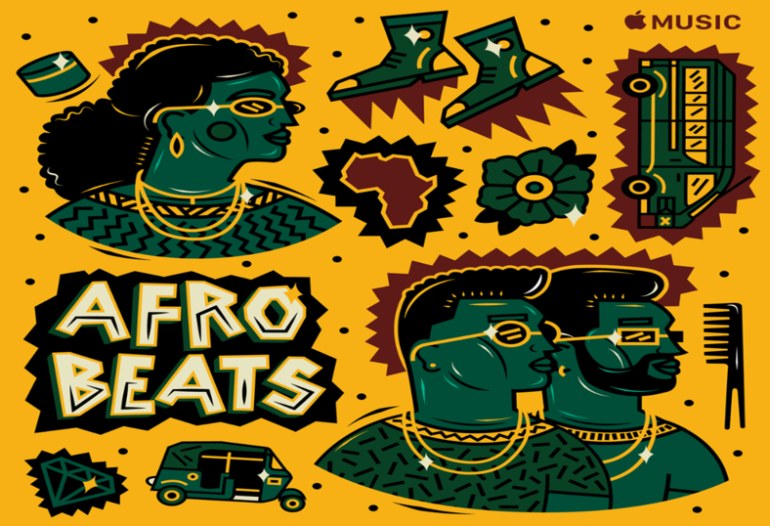Move to the AFRObeat!
Afrobeats is a genre of music originating in West Africa, that incorporates percussion rhythms and elements of funk and jazz. For years afrobeats was more of a niche genre of music that was very popular within the African community. However, recently, it has seen a spike in popularity.
The reason for its popularity could be attributed to the increased exposure to African Culture in the media, through movies such as Black Panther. As well as afrobeats projects from western artists such as Ed Sheeran and Justin Bieber. Junior, Lillianne Asokwah, believes that American artists partnering with African artists are beneficial to the genre.
“I think western artists have helped Afrobeat artists which is sad to admit because I do want to see African artists rise on their own but with songs with Beyonce per The Lion King, it has made Afrobeats more mainstream,” said Asokwah.
Afrobeat singers in particular have also seen crossover success in the states. In 2020, Wizkid’s single, “Essence” reached #10 on the Billboard charts, making it the first Nigerian song in history to do so. For some African students, this is something they feel should’ve happened years ago. Junior, Chiamaka Uzoechina, is one of those students.
“I took so long because people in society want to listen to everybody mainstream and don’t want to branch out to people who are good. It’s the same Ariana Grande type stuff but they think that everything affiliated with Africans is negative,” stated Uzoechina.
Despite the widespread popularity of the genre, some think that it’s best for Afrobeats to be gatekept, which means to exclude others from learning about a particular subject, whether it be TV shows or actual people. Nevertheless, it’s clear that Afrobeats has reached the point where it’s not so underground. Senior, Britney Momanyi, thinks that gatekeeping Afrobeats is harmful to the artists trying to make it in the music industry.
“I understand why they want to gatekeep because it’s like ‘I was there first’ and people are just now starting to actually be in tune with Afrobeats, even though they should have been there in the beginning. But honestly, you’re just getting rid of the African Artists from reaching the top and preventing them from getting the recognition they deserve,” explained Momanyi.
Similarly, Teacher, Ivonne Want, has the same viewpoint.
“Music is meant for people to share. Whether it’s pop, country, rap, hip-hop, everyone has a genre that they identify closely with and I think that’s the beauty of it. That despite our differences, music can bring people together,” explained Want.
Afrobeats is a very diverse genre in itself. Each song sounds different, yet they all have that same flair that makes it easy to recognize them as Afrobeats songs. As time has gone by, Afrobeats songs have been divided into “new Afrobeats” and “old Afrobeats”. With “old Afrobeats”, essentially being throwback songs. Whether the singers are old or new, they still have places in many hearts. Junior, Sydney Tamo, says she has a variety of favorite Afrobeats artists.
“I like older artists like P-Square. They make songs that you used to hear at every African party when you were growing up, and I would say the majority of Africans know at least one song. For newer singers, I really like Burna Boy. He’s definitely one of the more well-known Afrobeats singers there,” said Tamo.
Afrobeats has resonated with various different people across the world, with the UK launching its first African station: The Beat London 103.6 FM. In 2019, thousands of people traveled to West Africa to attend music-related events such as Afro Nation. Despite its origins, it’s apparent that Afrobeats has touched many. Teacher, Rena Long, thinks that this fact is due to the power music has on people.
“Music invokes a lot of feelings. So you can either be happy and celebrating together and dancing together or you can be listening to something because that’s more sad and bonding because it’s more sad or more motivating. So I think it’s a universal type thing,” explained Long.
Afrobeats have gone from being underground to breaking out into the mainstream media. In the west, it has caught on, but it appears they were simply late to the party. Despite this, the genre should be respected for what it is and appreciated nevertheless.


